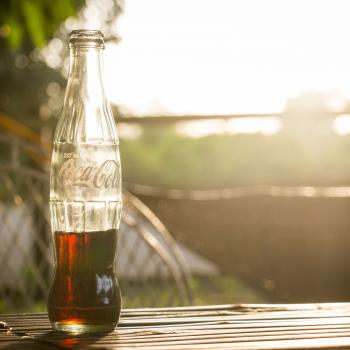 Sing in me, O Muse: That like Navin R. Johnson—the “I was born a poor black child” character played by Steve Martin in the 1979 film The Jerk—I might cry aloud: “The new phonebook is here! The new phonebook is here!”
Sing in me, O Muse: That like Navin R. Johnson—the “I was born a poor black child” character played by Steve Martin in the 1979 film The Jerk—I might cry aloud: “The new phonebook is here! The new phonebook is here!”
Time, of course, to cue the requisite twenty-something hipster joke:
What is a phonebook?
I have been a longtime phonebook reader, from way back when I first began to read—a reflection of either the value or detriment of a childhood marked by lots of free time and/or boredom.
With a hometown of only about 10,000, the phonebook was tiny, perhaps six by nine inches, neatly divided between the white residential pages and the yellow pages in the back. This was before the practice of including government listings in blue pages in the middle, but I do remember the standard instructions that applied to types of phone calls that existed back then: party lines (my aunt who lived on an isolated cotton plantation had one), operator-assisted calls, and, most mysteriously, station-to-station calls, which conjured up—for me at least—the idea of connecting to other worlds.
And there were other kinds of numbers one could dial like local time and temperature, and 1-800 services that were toll-free and could also provide an opening to other dimensions.
Thus began a lifelong pleasure in calling time and temperature numbers, which yielded their own mystery: Childhood friends and I found out that the Bank of Yazoo City’s time number (746-1234), which we called “The Time Man,” had a two-call capacity, and that if you and a friend called it at exactly the same time, there would be a brief pause at the end of the Time Man’s announcement during which you could talk through the Time Man to each other.
As I said, it was a small town.
But I also just loved reading the phonebook, too, and this has continued everywhere I have lived in the years since. I have scanned the residential name listings as though I were water-skiing, and it was from flipping through the yellow pages over the years that I have learned about many things, from the very gritty details about the services provided under “Abortion” (the breezy clinic names, the numbers-with-no-listed-addresses) to its juxtaposed “Abortion Alternatives” with its bureaucratically mandated disclaimer about what would not be on offer if one called that number.
Growing up in a region that was riven by race but in which racial issues were almost never honestly discussed, it was from the yellow pages that I pieced together the sociological details of the black side of town, from the listings for hairdressing establishments to the mom-and-pop grocery stores (the name of the Woo-Hor Grocery in my hometown, about which adolescent boys snickered, is really the Chinese immigrant success story, laid down in the Delta), to the alluring and fabulous names of the juke joint and night clubs that were scattered like sparkling bracelets on the edges of town: The Blue Front Café, Blue Flame, Chit-Chat Lounge, and The Silver Slipper.
The public library in our town had, inexplicably, a collection of phonebooks from most of the nation’s major cities, and at age eleven or so I managed to wrangle an outdated copy of the Las Vegas phonebook from the hands of its legendary librarian, John Ellzey. I read about escort services and bail bonds, but I also fantasized about how to use the phonebook to compose a life as a “single girl” in the vein of Mary Tyler Moore or Rhoda Morgenstern:
From the yellow pages, pick a garden apartment complex, a car dealership, restaurants to eat at, and laundromats to use. Maybe I’d be a dancer at one of the shows! I’d pick the strip mall grocery store chain I’d wheel my cart through each week, selecting the kinds of convenience products my mother would never consent to buy. And churches, because even though my family was effectively non-practicing, I thought everybody ought to have one.
I’d follow this pattern whenever I’d encounter other yellow pages, from other cities. Visiting my older sister in Washington, D.C., in 1981, I remember glancing at all the church listings, marveling at the ones that were culturally unfamiliar—Bulgarian Orthodox, Greek Orthodox, Romanian Orthodox, Russian Orthodox, Ukrainian Orthodox—and having no idea how many of them I would come to know intimately two decades later.
The point here, I think, is less about looking for religion than in actually, truly finding religion via the phonebook itself, in the phonebook’s revelation of infinite possibility, infinite plenitude. The myriad paths a life could take, the unheard voices at the other ends of the line.
Today, though, with the decline of landlines, you can barely even get anybody’s number. The cellphone lacks multivalency, but is instead merely unidirectional, a disregarding screech into the world, unwilling to listen.
This passage from Thomas Pynchon’s The Crying of Lot 49 gets, I think, at the capaciousness that the phonebook represents. He’s talking about the calls themselves, but both book and phone are part and parcel of same “secular miracle of communication”:
And the voices before and after the dead man’s that had phoned at random during the darkest, slowest hours, searching ceaseless among the dial’s ten million possibilities for that magical Other who would reveal herself out of the roar of relays, monotone litanies of insult, filth, fantasy, love whose brute repetition must someday call into being the trigger for the unnamable act, the recognition, the Word (emphasis mine).
There’s God, then, in the very structure of things, one who can’t be gotten so easily rid of. One who is perhaps evident, even, among the atheists.
I am still, still, and silent—still—before all that possibility.











